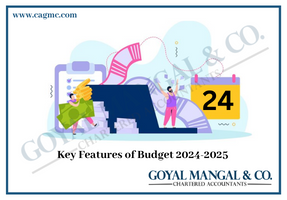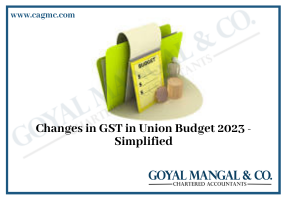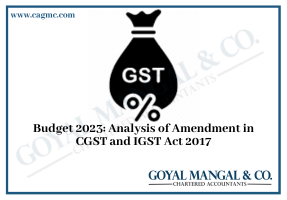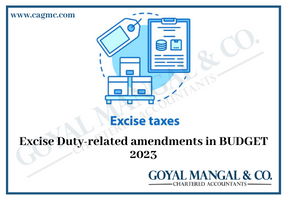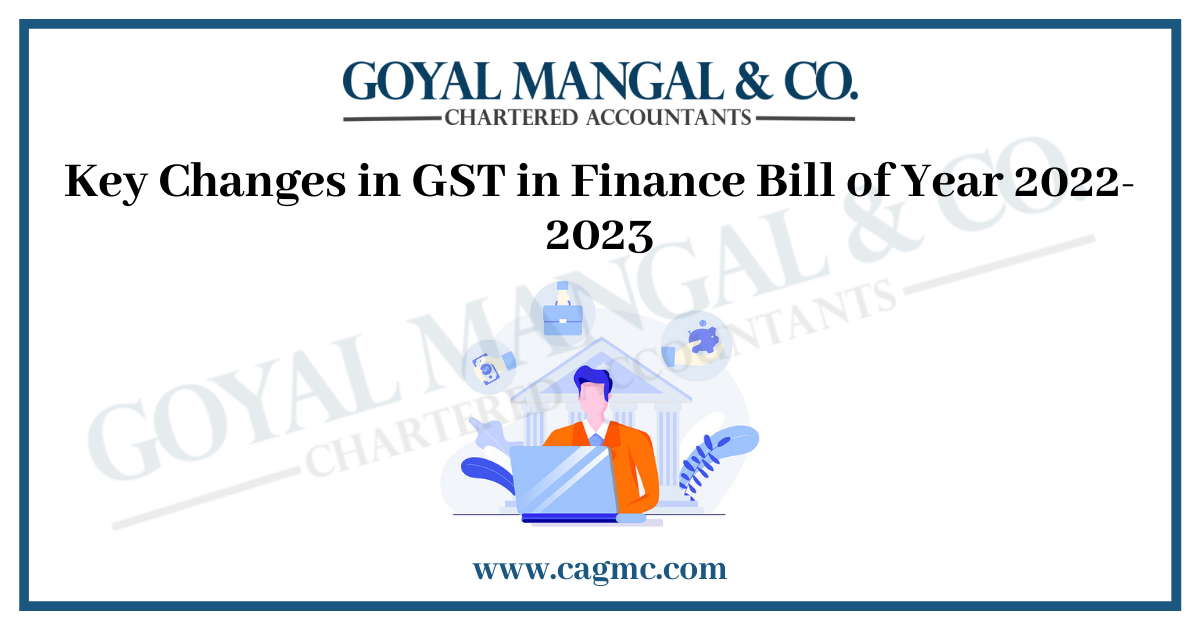
Nirmala Sitharaman, the Finance Minister, announced the Union Budget 2022 on 1st Feb 2022, which includes a slew of infrastructure, e-vehicles, healthcare, and housing reforms. With an expected 9.2% GDP growth rate and GST collections of over Rs.1.4 lakh crore, the future looks bright. Ideas, as well as modifications to the GST law and act, includes in the Union Budget 2022. With this 4th Union Budget presentation, Nirmala Sitharaman offered various GST recommendations in the parliament in the Finance Bill 2022. Here in this article, we will discuss in detail major key changes in GST in financial Bill 2022.
What do you mean by Goods and Services Tax?
GST (Goods and Services Tax) is an indirect tax that imposes on the supply of goods and services in India. The GST Act was passed by Parliament on March 29, 2017, and into effect on July 1, 2017. It is a multistage, comprehensive tax: as it includes practically all indirect taxes. The GST is imposed at each stage of the production process. It is intended to be refunded to all parties involved in the various stages of production except the final consumer. Also, as a destination-based tax, it is collected from the point of consumption rather than the point of origin, as previous taxes were. It is levied at every stage of sale, in the case of intra-state sales, both the federal and state governments levy GST. The Integrated GST applies to all interstate sales.
The termination of the GST registration by Officers
The taxpayer’s GST registration will get cancelled, which means he or she will no longer be a GST registered person. He won’t have to pay or collect GST. Also, will be able to claim input tax credits, thus he won’t have to file GST returns.
As by the amendment, Section 29 of GST changed under Budget of 2022. The officer will terminate the GST registration if the following conditions are met:
- A person who is not a composition taxable person has not filed a return for a financial year for the period of time specified from time to time.
- If a composition taxable person (paying tax under Section 10) has not submitted GSTR-4 for the previous fiscal year by April 30th of the following fiscal year.
Provisions of the Input Tax Credit have been changed (ITC)
- It is suggested to establish a new clause (ba) in sub-section (2) of the CGST Act, 2017. It is to provide that input tax credit for a supply may claim only if the credit has not been restricted in the details communicated to the registered person under section 38, namely GSTR-2B.
- After the 30th of November following the end of the financial year to which the invoice relates or the filing of the annual return, whichever comes first. A registered taxpayer will not be eligible to claim ITC on any invoice or debit note.
Previously, claiming ITC on any invoice or debit note relating to a certain financial year was restricted if it was not received by the due date of submitting a return for the month of September or filing an annual return, whichever came first.
Alterations to the electronic credit ledger
The CGST Act was amended to include restrictions on how the money in the electronic credit ledger can be used. It is recommended that Section 49(4) of the CGST Act, 2017 be changed to read as follows:
- Make provisions for imposing restrictions on the use of the electronic credit ledger’s available funds.
- Permit the transfer of funds from a registered person’s electronic cash ledger to a separate person’s electronic cash ledger under the CGST Act or the IGST Act.
- Specify the maximum percentage of output tax liability that can be discharged using the electronic credit ledger.
Extending the deadline for issuing Input Tax Credit
- A registered person will not be allowed to take input tax credit in respect of any invoice or debit note after the 30th day of November after the end of the financial year to which such invoice or debit note relates, or after furnishing the relevant annual return, whichever comes first.
- It should be noted that the deadline for claiming ITC is now the due date for filing GSTR-3B for the month of September following the end of the financial year to which such invoice or debit note relates, or the filing of the relevant annual return, whichever comes first.
Thus, we can say that it extended the deadline for issuing credit notes to the 30th of November following the fiscal year’s end, or until the date of filing the annual return, whichever comes first.
What are the New Provisions relating to the filing of GST returns?
By revising both Section 37 and Section 39 in the Finance Bill 2022, the GST return filing laws have been made even tougher. The GSTR-1, for example, is governed by Section 37, which specifies the details of outward supplies to be given. The GSTR-3B, for example, is governed by Section 39, which covers the summary of inward and outward supply, input tax credits claimed, and taxes paid.
Also, a new sub-section (4) has been added to Section 37, which stipulates that taxpayers will not be allowed to provide details of outward supplies for a tax period, if the same is still outstanding for a previous tax period. Similarly, Section 39 was revised with sub-section (10), which now prohibits taxpayers from filing a Section 39 return while their Section 37 return for the same tax period is still ongoing.
These revisions would ensure that a taxpayer’s previously unfiled returns are now filed.
Conclusion
In light of this, we will be seeing how the financial plan unfolds and sets it up for the future. It should try to find the right balance between emphasizing gross collections and striving. In order to revive the economy, this is on the mend but is undoubtedly still suffering from the pandemic’s negative impacts.
